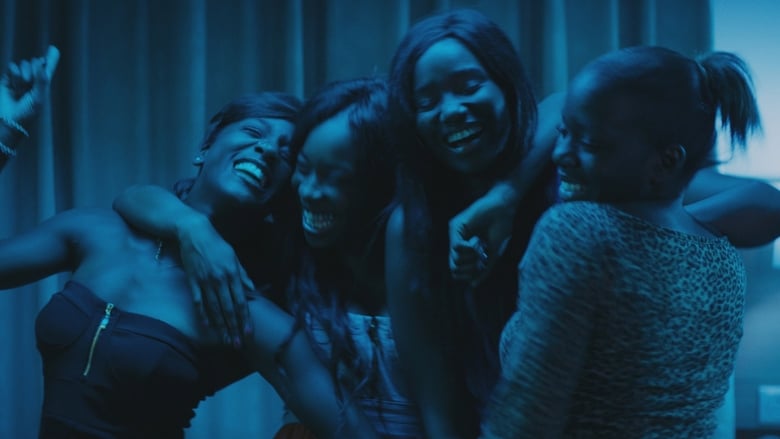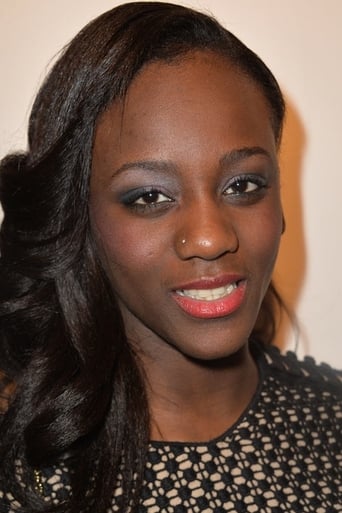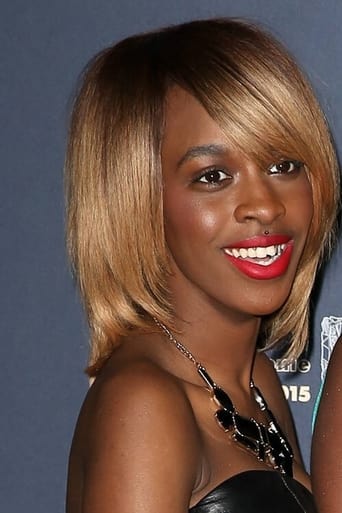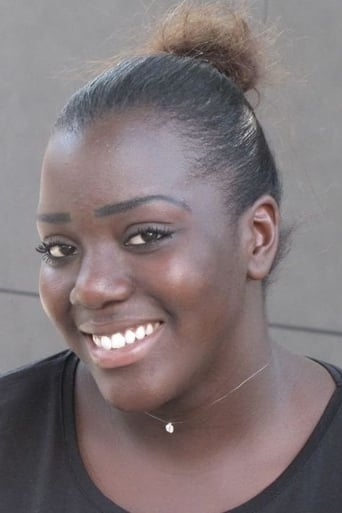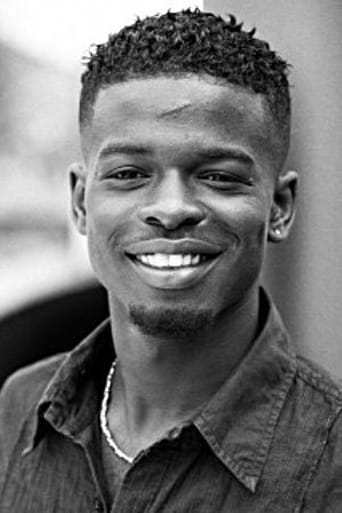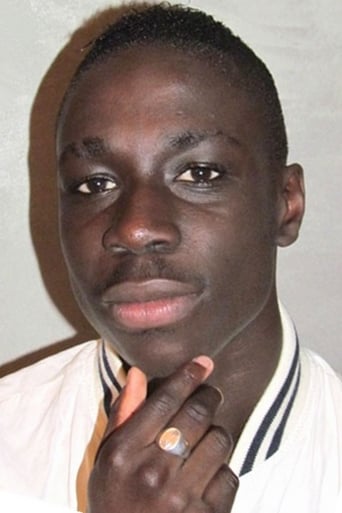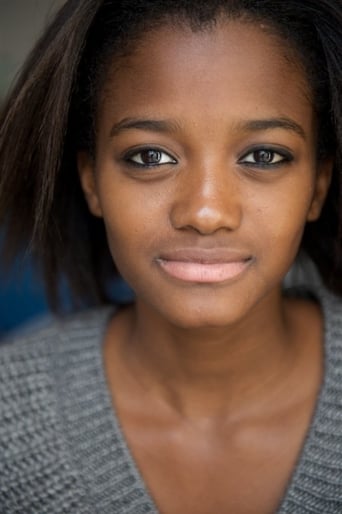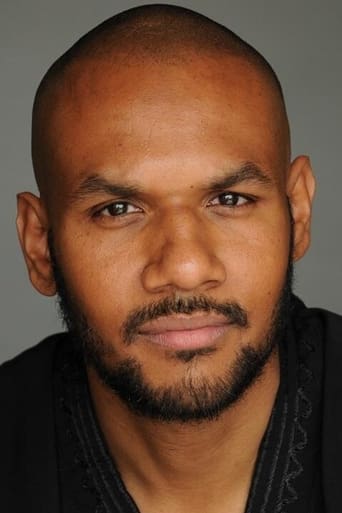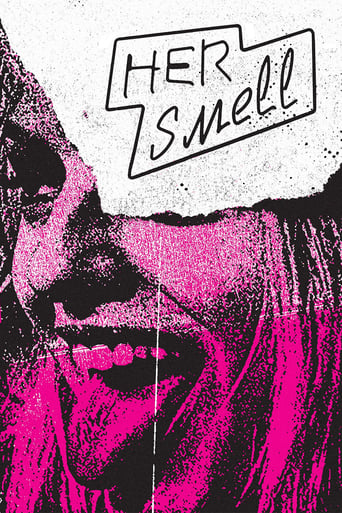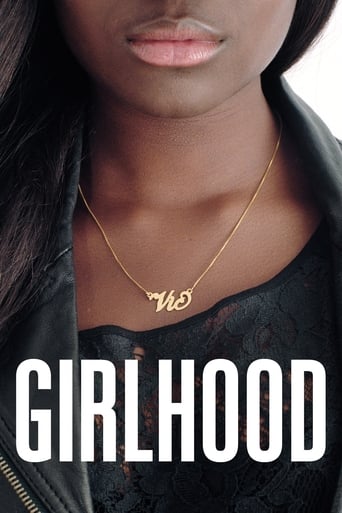
Oppressed by her family setting, dead-end school prospects and the boys law in the neighborhood, Marieme starts a new life after meeting a group of three free-spirited girls. She changes her name, her dress code, and quits school to be accepted in the gang, hoping that this will be a way to freedom.
Similar titles
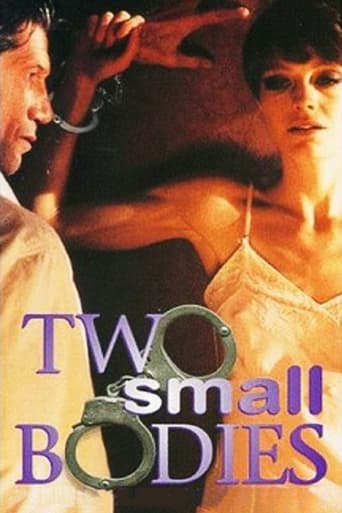
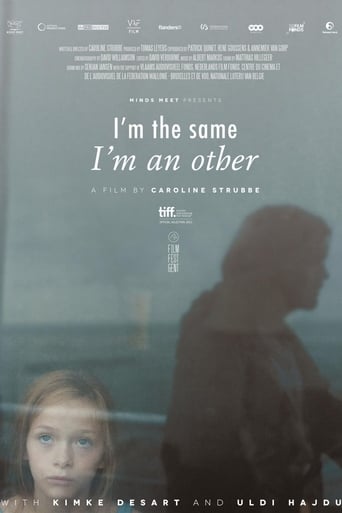
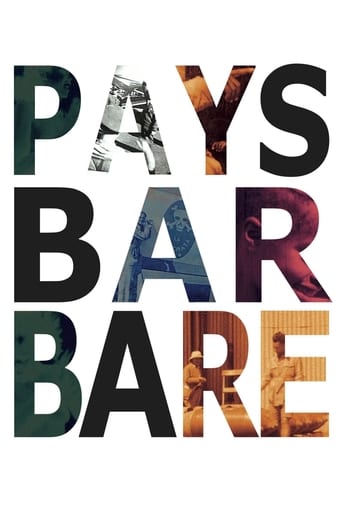
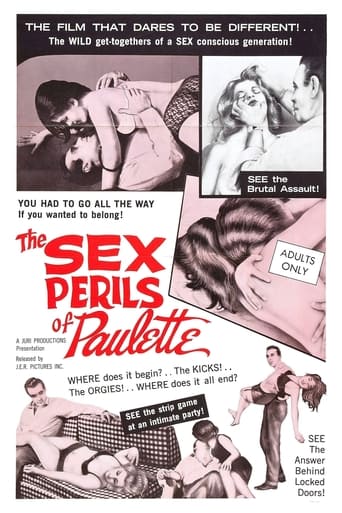
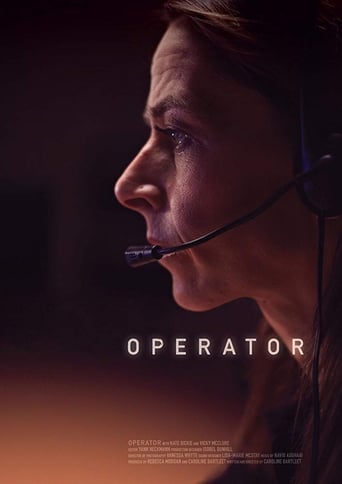
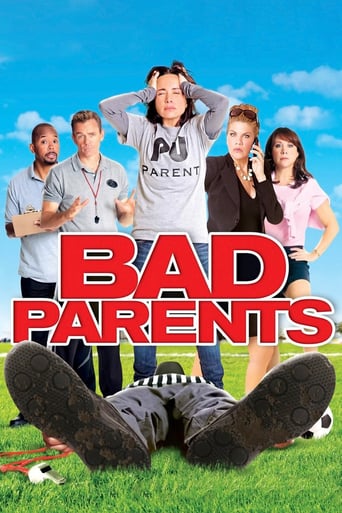
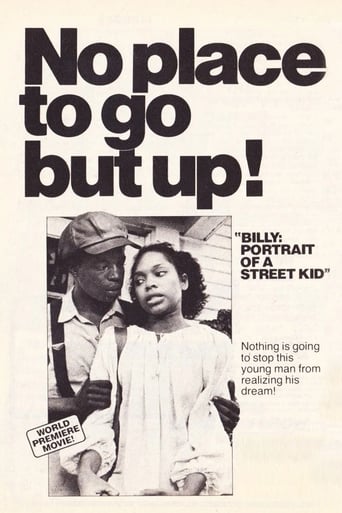
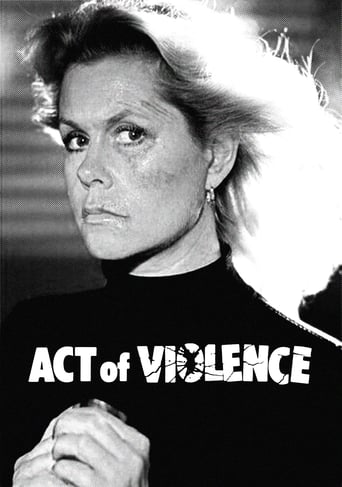
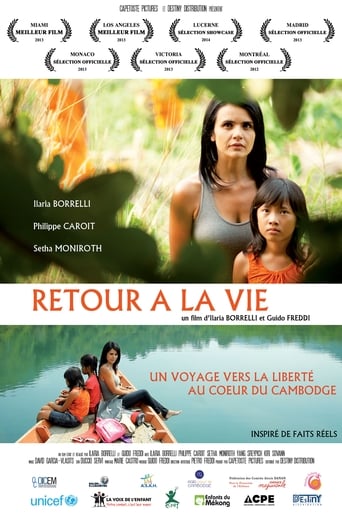
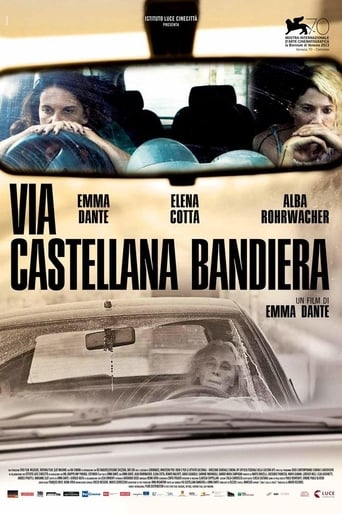
You May Also Like
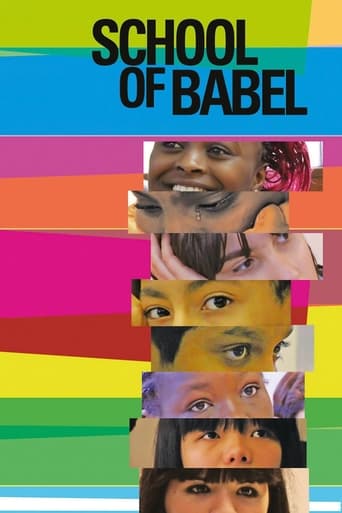
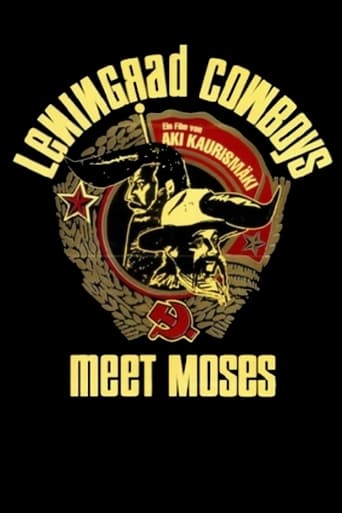
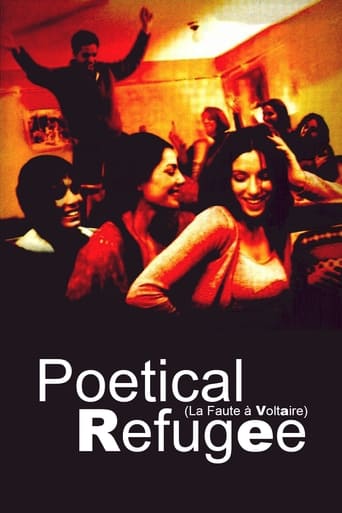

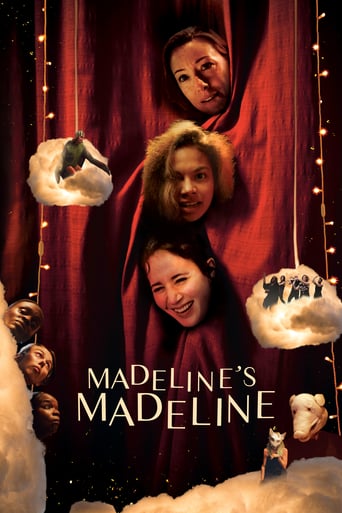
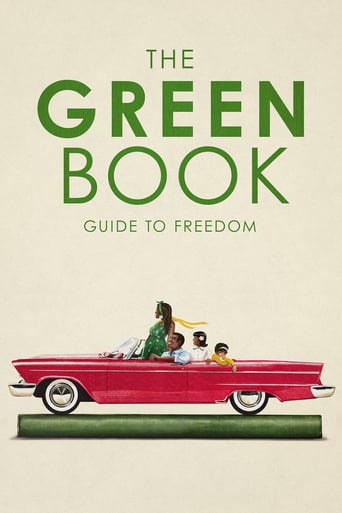
Reviews
Admirable film.
I really wanted to like this movie. I feel terribly cynical trashing it, and that's why I'm giving it a middling 5. Actually, I'm giving it a 5 because there were some superb performances.
This is one of the few movies I've ever seen where the whole audience broke into spontaneous, loud applause a third of the way in.
A terrific literary drama and character piece that shows how the process of creating art can be seen differently by those doing it and those looking at it from the outside.
French director Céline Sciamma's new film is called "Girlhood," probably named that way in English to capitalize on last year's similar moniker, "Boyhood." But in French, it's translated as "Girl Gang," which to my ears is a more appropriate title. Citing the lack of French films dealing with black people, Sciamma, who is white, decided to hang out with some French-African teenagers to learn more about their culture and perhaps fashion a film based on her experiences. The resulting product features non-professional actors culled from what is usually referred to in the US as "the projects," rows of drab apartment buildings in a lower socio-economic section of the city.The opening scene is most telling as Sciamma depicts a group of high school girls playing American style football. As they walk home and continually pass by groups of loud, hostile-acting males, they gradually peel off, finally leaving us with the film's protagonist, Marieme, a 16 year old teenager who later refers to herself as "Vic" (for Victory).Marieme's mother is too busy working to pay much attention to the teenager's needs and her brother is a macho creep who occasionally physically abuses her. After she fails to get into college because of poor grades (and faced with the prospect of attending a vocational school instead), Marieme develops a crush on a boy who is friends with a gang of three girls—she soon falls in with the group and gradually is transformed from a shy teenager to an aggressive rebel.The leader of the three is Lady, whom the other girls look up to. Sciamma chronicles the misadventures of the girl gang as they traipse around Paris (mainly in shopping malls), shoplifting, extorting money from other girls and acting as obnoxiously as they can. Sciamma appears to take no stand on their behavior, merely depicting their loutish shenanigans as typical of wayward, rebellious teenagers. The main plot involves Lady's fall from grace after she is beaten up in a fight with a girl from a rival gang before a fairly large group of people. Lady retreats from public review after her father forbids her to pursue further rebelliousness activities. Marieme takes up the group's mantle when she in turn beats up the teenager who defeated Lady. Sciamma's gritty depiction of the activities of the girl gang and their rivals works well--akin to some of the more interesting cinema verité efforts here in the US. Not only does she capture their anti-social side with cogent verisimilitude but also highlights the teenagers' sense of camaraderie (the highlight being the group dancing to Rihanna's song "Diamaonds").Unfortunately, Sciamma's resolution to Marieme's story is not completely satisfactory. Marieme eventually parts with the rest of her group and begins working for a local drug dealer, Abou. At one point we see her disguising herself as a boy, perhaps to avoid being hit upon by rapacious males who are part of Abou's group. Later, Abou does just that at a party and Marieme declares she's through working for him. Marieme's boyfriend's suggestion that they get married falls on deaf ears and the aimless former gang leader is rebuffed after she tries to buzz herself into the family apartment.What are we supposed to conclude about Marieme's fate? Is she the victim of a society that favors the upper middle-class and the rich? Is it all racial—that because she's black, she can't get ahead? Or is it Marieme's own choices that stymie her? Perhaps she could have gone to vocational school instead of falling in with her girl gang rebels. Sciamma again perhaps takes no sides but her tale feels incomplete— perhaps we'll have to wait for the sequel to find out what happened to her.
I like films like this one. They have purpose, relevance, and seek to connect us with lives we have not lived but can empathize with. It's easy to see these characters as punks until it becomes difficult to. Writer/director Céline Sciamma makes no effort to judge the actions of the characters and thereby gracefully detaches her ego from the story. This makes for a film watching experience that is more absorption than hard analysis and intellectualization of this protagonist's life. This does not make it any less a provocative work, but allows for understanding we would not get otherwise, as with a camera less subtle.Yes, it's a coming of age film, but without the climactic moment when the character comes- of-age (whatever that means). Instead the film is about comings and goings of identity and security, and why a person would seek these things.It's socially relevant in the way it poses the character's environment and socioeconomic influences as factors to her motivations. We get a true sense of her circumstance. It explores low income, predominantly black areas of society untouched by most films. The attention it gives to people of this circumstance and the understanding it promotes is certainly a means to social change if only these sorts of films could reach more people. Much attention is payed to bodies, skin, and faces, which the lighting often compliments. This is the source of the film's power rather than extraneous camera movement. The fascination here is intriguing as it's not out of lust but well maybe it's just about the fascination. We are sensitive towards our physiques and appearances, and the camera shares this, only the bodies it shows are not just the characters' bodies but the actors' bodies. Bodies are a source for both power and insecurity to the characters. I don't feel the need to analyze this, only to comment, so I won't say any more.While Girlhood won't be in everyone's movie watching range, it's definitely worth seeking out if you're inclined.
My favourite film of 2014 being Boyhood, I was naturally curious to see 2014's Girlhood. Actually, Girlhood- which comes from France- isn't meant to be the feminine equivalent of Boyhood. It doesn't have the same scope and clearly wasn't filmed over 12 years. It deals with a teenage girl who, failing to graduate to high school, drops out of vocational school to join a gang. It's not as rough as you would expect for the first half of the film- what we have is an extended view of girls who like clothes, jewelry, singing Diamonds and even miniature golf. It's in the second half when we see a more serious fight (our protagonist, "Vic," uses a knife to remove another girl's bra) and then sex, and insults about being a slut. Instead of the gang being portrayed as a truly destructive force, it's actually more of a sisterhood whose members discourage Vic from descending deeper into criminality.We certainly see Vic's motivations for joining the gang- she has little future, and is told it's too late for her. Not encouraging. Her home life is rough, too. I can't say I was blown away by Girlhood, but it's a believable drama with a sympathetic protagonist.
Be warned: BANDE DE FILLES is not a realist drama about the struggles of young women of color in the hardscrabble French ghetto. It is the creepy erotic fantasy of a middle-aged white lesbian."Celine Sciamma must be a homosexual," I deduced as I left the theater, proud of myself for penetrating the mystery of BANDE DE FILLES. A quick Google search confirmed my intuition. How did I know? First of all, every man in the movie save one is a violent psychopath. The single exception to this rule is a simple idiotic chauvinist. Now, this is not a criticism as such. I am sure that the men who live in Marieme's projects are quite as bad as Sciamma portrays them to be. However, it is clear that in Sciamma's libidinal economy, men are by definition psychopaths, which does not amount to the same thing. Second of all, the film ends with the main character becoming a butch pre-lesbian complete with short haircut and bound breasts. Huh? Nothing prepares us for this development. The director clearly wants us to raise our fist and cheer for Marieme when, in the last scene, she bravely chooses an uncertain Elsewhere over the oppressive environment she grew up in. But I know where Sciamma sends her when she walks out of the frame: straight to her bed. Now, there is nothing wrong with filming one's fantasy and filming it dirty at that. Sciamma's bad faith lies in the way she hides it under an unconvincing pseudo-political drama. Had she filmed a straight exploitation movie I would have been the first to award it ten stars, but I hate Beautiful Soul hypocrisy and ideology. The director's creepiness is double. The actresses have no idea that the unrealistic drama Sciamma has written for them is nothing but a pretext to perv on the otherness of their black bodies. Watching the film, we sense that this act of subtle deception perpetrated on the actresses by the director is a necessary ingredient in Sciamma's perverse scenario. Not only is she getting off on their otherness, she is getting off their ignorance of what is really going on. How is this different from what Hitchcock does? After all, his greatest movies are all perverse fantasies of possession hidden within the socially acceptable form of the thriller. The crucial difference lies in the fact that Hitchcock never claimed, implicitly or explicitly, that he was helping anybody, that he was an agent of Good, or that he was giving a voice to the disenfranchised. He told us loud and clear: I am dangerous. I am not to be trusted. Enter my fantasies at your own risk. Back to BANDE DE FILLES. Every few minutes the dialogue stops and Sciamma treats us to an extended music clip during which the exotic black proles undulate poetically and emote into the void. These are the money shots that are supposed to give the film an allure of artistic integrity. All they do is shore up the idiocy and meaningless of the actions of the four main characters. What is pornography? It is the attempt to render visible something that is radically invisible, namely sex. More precisely, it is the mystery of feminine interiority that pornography betrays by purporting to show it. The fact that Sciamma is a woman does not make her attempt to show what cannot be shown any more legitimate. We all become idiots when we attempt to depict feminine jouissance.Visually, the film is difficult to watch because of the constant close-ups. They create a claustrophobic effect that renders directly Sciamma's desire to possess her characters. Her camera is glued to their skin, incessantly and pervily traveling up and down their bodies. The fight scenes, each of which ends with a black teenage girl being beaten, stripped, and humiliated in front of a frothing crowd, form the true center of the movie. Here is where Sciamma's slip shows. We can sense her licking her lips and getting excited as she films these girls clawing at each other like enraged pit bulls. Rather than focusing on the standard fixed body parts as the perverse male gaze would, the perverse female gaze treats every inch of these girls as an erogenous zone. The resulting absence of a fixed point of view elegantly materializes Sciamma's refusal of the phallic order and its pretension to objectivity. But here lies also the problem. From a social point of view, there is nothing here but domination, submission, and misery. No one has anything but the most regressive and impoverished relationship with language and Logos, and we sense that Sciamma likes it that way. A few of the characters attempt to navigate through this fog of perversion towards something resembling morality, but with no outside support, all they can do is fumble. The long and the short of it is that Celine Sciamma, rather than denouncing the gratuitous misery and violence of French ghetto culture -- the only acceptable ethical stance -- gets off on it. Verdict: one more sanctimonious white ideologue using minorities for her own perverse agenda.
Top Streaming Movies











